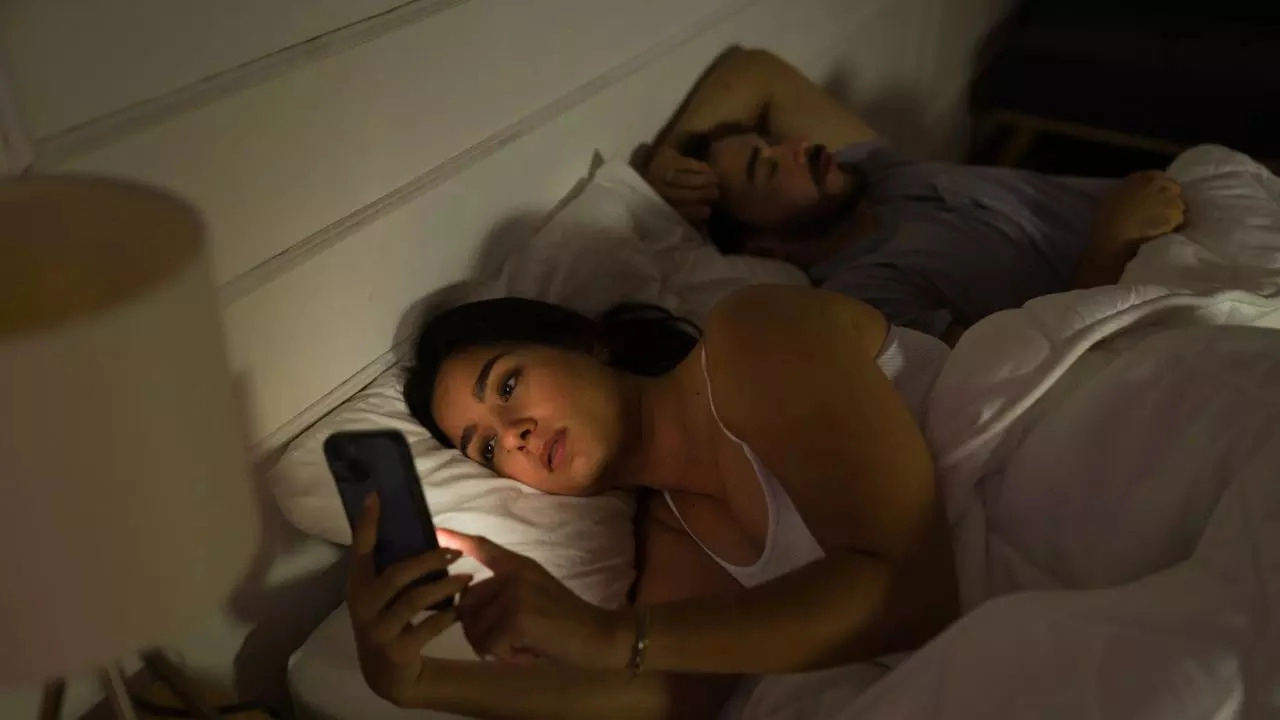Akanksha Arora • 15 Sep 2024
Common Evening Relaxing Habits That Are Secretly Harming Your Health

These Post-work Relaxing Habits Are Actually Harming Your Health. (Image: iStock)
Many of us want to spend our evenings relaxing and recharging after a long day at work. And we make sure that we do so. After a long day at work, all we need is some time with ourselves to unwind. But are our evening routines actually causing us even more stress?
According to experts in the UK, 41% of adults worldwide experiencing a lot of stress. The researchers further unveiled some of the most common post-work habits could be harming our health and contributing to stress levels.
Here are some of those habits and how you can break them.
Excessive Screen Time
When we get home from a long day at work, it’s all too easy to fall into the trap of non-stop scrolling on our phones. Although it may feel like a break for our brains, endless hours of screen time could be doing a lot of harm to our brain.The physical impact can range from eye strain causing headaches and migraines, to pain in the neck, shoulders, and back. And the impact on our brains can be equally as damaging, with some studies suggesting that our smartphones and social media could be dangerously addictive.
Instead of reaching for your phone, try to find a no-screen hobby to scratch that itch: reading, journaling, crafting, and cooking.
After Work Coffees
A coffee is tempting after a long day when you need a boost to head into your evening activities. What many people don’t realise is the impact this could be having. Many studies show that the effects of caffeine can last up to 12 hours. So although you may not link your post-work coffee to the tossing and turning you experience when trying to fall asleep, science suggests that it could most definitely be the culprit.Luckily, there are plenty of alternatives. A brisk 10 minute walk or a quick power nap could have the same energy boosting effects.
Too Much Sitting
Lounging on the sofa until bedtime all we want after a long day and it also sounds comforting to the soul. However, for those whose jobs also involve sitting for long periods, this choice of evening activity could be doing more harm than you realise.The risks of too much time spent sitting should not be underestimated: studies have linked sedentary lifestyles to vascular musculoskeletal issues, heart disease, obesity, and even cancer.
To make changes, try setting timers to get up and move, using a standing desk, walking with colleagues during meetings. However, our after-work habits are equally as important.
The Wrong Snacks
Cooking a meal is the last thing that you want to think about after a long day. This can lead to the habit of snacking on anything that is easily available instead of cooking a full, balanced meal. It is all too easy to spend the evening munching on ultra processed snacks, often high in salt, sugar, and fats, and low in the nutrients that we need, instead of having a proper meal. Studies show that this habit “can increase a preference for these types of foods, leading to a change in eating behaviours and diet quality.”There is a solution that many have found to eliminate this habit: meal prepping. This could be anything from pin order to limit the effort required to make a proper evening meal.
Sacred Bedtime
Many of us try to finish pending tasks when we should be winding down for the evening, or tossing and turning in bed as you think of work dilemmas instead of sleeping. Either way, the impact not switching off can have on our sleep quality, stress levels and mental health should not be understated.Though it can be tricky to kick this habit and banish stressful work thoughts from your evening routine, there are tactics you can employ to help. Research suggests journaling about your stresses, or keeping a notepad nearby to jot down ideas as they pop into your head late at night.
Get Latest News Live on Times Now along with Breaking News and Top Headlines from Health and around the world.